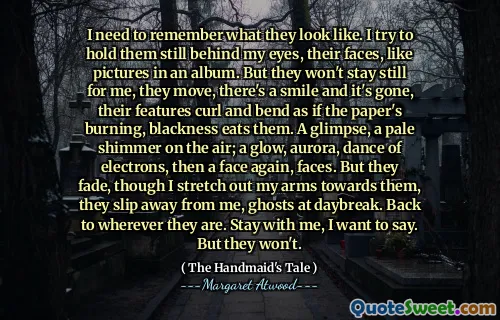These albums were thick with babies, but my replicas thinned out as I grew older, as if the population of my duplicates had been hit with some plague.
In "The Handmaid's Tale," Margaret Atwood reflects on the speaker's changing relationship with childhood memories. As the narrator matures, she observes that the abundance of her childhood experiences, represented by numerous albums filled with images, starts to diminish. This suggests a loss of innocence or the fading of once-vibrant memories, akin to the effect of a devastating plague on the population of her recollections.
The idea of thinning replicas serves as a poignant metaphor for how adulthood alters the perception of one's past. It emphasizes the inevitable erosion of youthful exuberance and the way life's challenges can dilute the vibrancy of earlier times. Through this imagery, Atwood captures the bittersweet nature of growing up, where memories that once felt plentiful become scarce, leading to reflections on what has been lost along the journey into adulthood.






